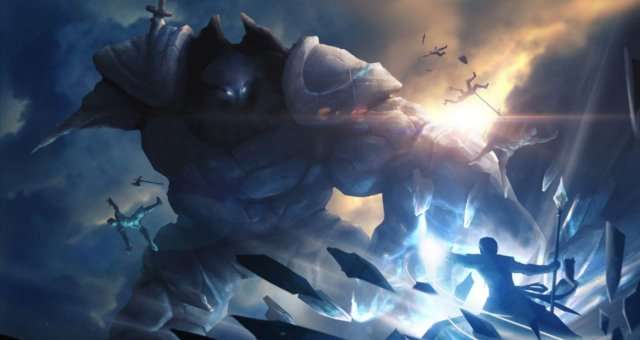
This is for people who have tried Fallen Enchantress and lost, and need a quick guide on how to get started and maximize their turns in the early game.
Fallen Enchantress Guide
If you’re reading this you have probably played Fallen Enchantress and lost. It is a very fun game to win, and there are lots of different ways to win, but there are some key concepts that are not intuitive that you need to understand before you even begin playing. Some of these are covered in the Tutorial, which is in the Main Menu and is often skipped by people who just want to jump into a game, but others are more subtle and skill-based, hence this walkthrough.
Game Menu and Choosing a Character
There are Eight factions in the core game, and each one has a starter Sovereign who you play. These are divided into two subcategories: Kingdoms and Empires. There’s really not much difference between the two except Kingdoms use Life magic and Empires use Death Magic.
Kingdoms are Altar (Lord Relias), Capitar (General Carrodus), Tarth (Lady Irane), Gilden (Lord Markin), and Pariden (Queen Procipinee).
Empires are Resoln (Oracle Ceresa), Yithril (Warlord), Umber (Kulan), Kraxis (Emperor Karavox) and Magnar (Magnar).
You can also create your own and even create an Empire or a Kingdom with it and a backstory. To get the achievements you need to win with all of them at least once, so pick one that suits your gameplay style that you feel like playing.
Starting the Game
Before I even move, I save the game. That way if I make an early mistake I can reload. When you are starting the game you are looking for a tile with good resources. Resources are divided into three categories: grain, material, and essence. Grain affects how fast your city will grow, material affects how fast you can produce units and buildings, and essence affects how many spells you can cast on that city. Some tiles may have a large grain/material ratio but no essence. The enemy npcs may choose these to build their cities on, but I highly advise against it. The ability to cast a spell on your cities early on is just too beneficial to creating a city that is not built on at least one essence.
Keep in mind that if you don’t see a good place – and a good second and third place – to build your city, it’s really easy to just load a new game from scratch.
There are three types of cities; you choose what type that city will be when it reaches level 2 and you can’t undo that choice: Towns, Conclaves, and Fortresses. Towns are your money makers. Your first city will probably be a Town. Good spells to cast on your towns are Meditation, and Propaganda. Conclaves are research centers. They are the only city type that can get an additional Essence (from the Oracle upgrade). Good spells to cast on Conclaves are Meditation and Inspiration. Fortresses make for troop creation. They have special structures like Barracks that give bonuses to all troops that are created there. There are spells you can cast on them that will give bonuses to the troops created there.
One thing the game does that you need to keep up with is building cities. As soon as you build your first city, before you build any structures, you pretty much want to create a scout and two pioneers. You could even skip the scout if you save your game and scout around with your Sovereign. A good, balanced start will have three cities – one of each type in the very early game. As soon as you build a city you want to immediately cast spells on it.
Green Treasure Chests
The other thing that happens early in the game is Sovereigns scour the land for green treasure chests. In the beginning, these have some very useless stuff in them. To this end, I always save the game before opening a chest. What I look for, generally, is armor. New champions always come with a weapon, but until later you will need to spend guilder to equip all their armor slots. This can make or break your success at combat early on. Sometimes these chests have research points, so there’s a lot to be said by knowing the map and just running around with your Heroes until all the chests are found.
Keep Building Cities
If there is a place to build a city, you need to either build a city there or put an outpost near it to keep your enemies from building a city there. Early on, the AI will attempt to build cities inside your borders if there is an available place to do so. You generally want to avoid war in the early game so make sure there are no tiles they can build on.
Research
The Warfare tree has special researches that increase the number of troops in your army by one troop These are Drills, which you get early on, and Siege Weapons and War Colleges much later. The Civilization tree has technologies that increase the number of units in a group – you start with 3 but can eventually have 6. These researches are Cooperation, Logistics, and Company (in that order). Having more units in a troop increases the cost of that troop appropriately, but it will make your units stronger. You need all the researches, but be mindful of these in particular because they can really boost the strength of your army.
Military
Your initial army consists of your sovereign and two troops. You probably have room for one or two more by the time you have 3 cities. The cheapest way to get one, at least, is to increase your fame and have a Champion join you. The other can be whatever basic unit you can train as soon as you can get it. As soon as you research Leatherworking you get a very good defender-type troop with good armor and a decent faction weapon that you can usually afford to build one of. It is well worth saving the game before any combat and reloading if it means you are going to loose a troop. I usually auto-resolve combat in the beginning just to see what the basic win-loose ratio is. If it’s a foe I need to micromanage a combat for (like a monster that’s immune to physical weapons) I’ll play out the combat. I find it’s always good to do a little of both – combats with a lot of little enemies tend to do better on Auto-resolve, where ones with just a few big aggressors do better by playing them out.
I find that for most factions, archers are weak and you get them too late in the game. Melee units in armor have better survivability and you get one with each “weapons”-type research in the Warfare tree.
Something I like to get as early as possible is horse and warg farms. Just building a horse farm enables you to buy horses with guilder in the Shop menu for your Heroes. Having a units on horseback is an amazing way to make your army stronger, both on the world map and in tactical combat, and is a great early to mid-game goal.
Heroes
I usually make my Sovereign a Commander. At some point I pull him out of the Army lineup and park him on a city where I need to be rushing development, usually a Fortress because Fortresses need all the buildings the other cities need (merchant, bell tower etc) but also need troop bonus buildings like the barracks-line of buildings. Plus Fortresses are building troops, which makes them further hard to develop quickly. I usually make the other champions whatever they seem to be suited for.
When you can build it, an Adventurers Guild is a nice upgrade that gives Heroes parked on your city 1xp per level.
Gaining an Edge
There are a lot of tricks to this game, such as using an Air Mage to buff a Champion to give them extra XP. As with all other games of its kind, whoever has the most research has the best advantage. The more cities you have the faster you can outgrow your enemies both in technology and in military might. I think the easiest way to win is to build the four towers in the Magic tree and cast the Spell of Making. Once you start building those towers you will probably get attacked.


Be the first to comment